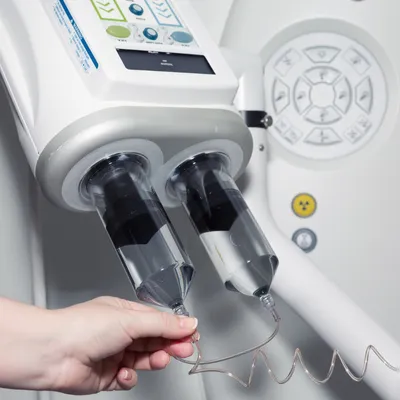
Medications & IV Contrast
Medications to Hold When Administering IV Iodinated Contrast: Guidance for Clinicians
When preparing patients for IV iodinated contrast, the primary medication of concern is metformin and its combination formulations (e.g., Janumet, Actoplus Met, Kombiglyze XR). The issue is not that metformin interacts directly with contrast, but that in the rare event of contrast-induced nephropathy or acute kidney injury, metformin accumulation can increase the risk of lactic acidosis. While this complication is uncommon, it is potentially life-threatening, which is why careful management is required.

For patients with eGFR ≥ 45 mL/min/1.73 m² and no evidence of acute kidney injury, metformin does not need to be withheld before or after IV contrast administration. These patients can safely continue their regimen without interruption. Patients between 30-44 mL/min/1.73 m² should have Metformin dose lowered 50% with renal function lab follow up. However, for patients with eGFR < 30, known acute kidney injury, or those receiving intra-arterial contrast with potential for renal embolization, metformin should be withheld at the time of contrast exposure. Renal function should be reassessed approximately 48 hours later, and the medication can be restarted if kidney function remains stable.
Other classes of diabetes medications — including insulin, sulfonylureas, DPP-4 inhibitors, GLP-1 receptor agonists, thiazolidinediones, and SGLT2 inhibitors — do not have direct interactions with iodinated contrast. These medications may be continued as clinically indicated, with the usual peri-procedural adjustments for patients who are NPO. The one caveat is that in hospitalized or acutely ill patients on SGLT2 inhibitors, clinicians should remain mindful of the potential for euglycemic diabetic ketoacidosis, though this is not specifically a contrast-related concern.

In summary, from a radiologist’s standpoint, metformin is the key drug to manage when scheduling patients for IV contrast. All other diabetic medications can generally be continued, but we encourage clinicians to tailor management to each patient’s comorbidities and renal function. Clear communication between the radiology team and referring clinicians ensures that contrast can be administered safely while minimizing any risk of drug-related complications.
